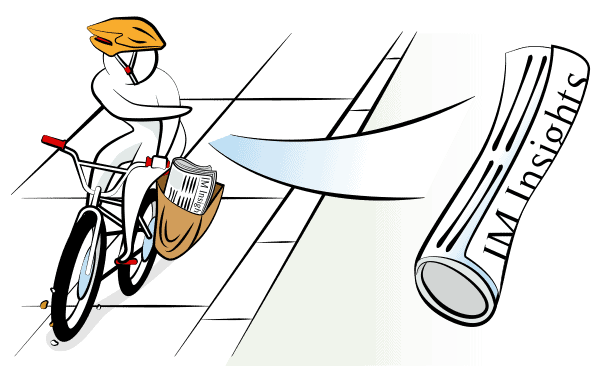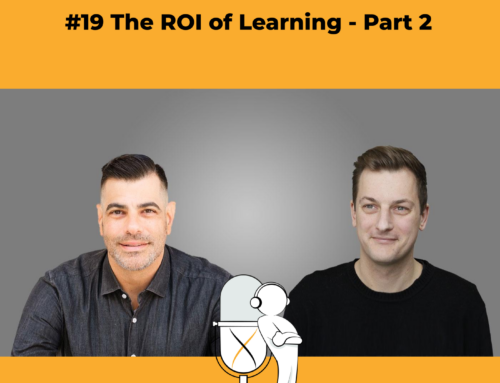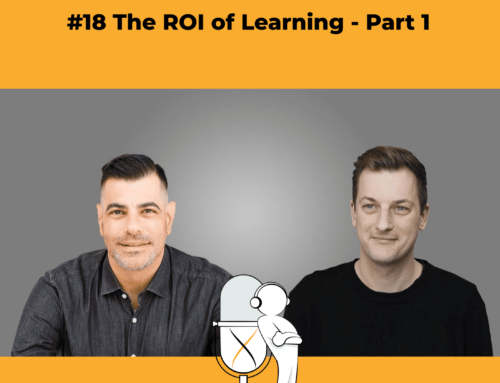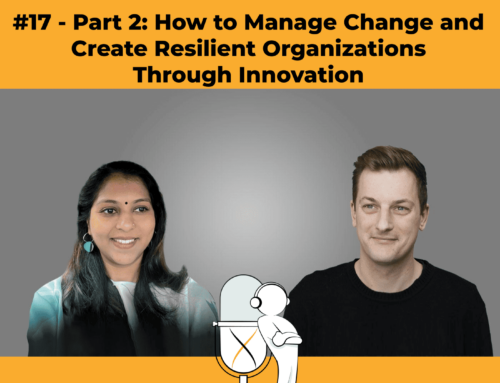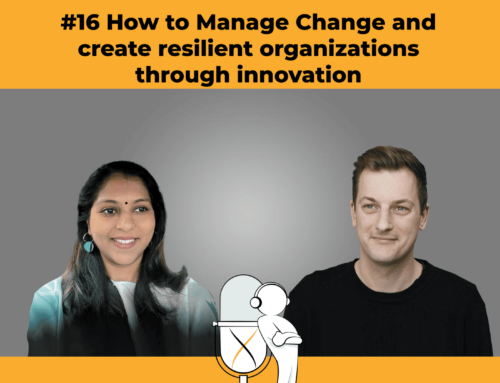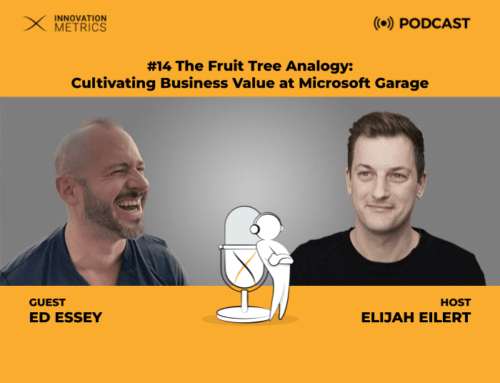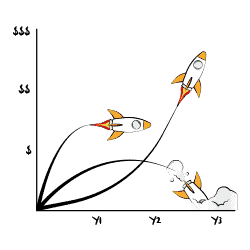Episode 15 Psychological Safety, Cognitive Diversity, Trust & Fear in Innovation
About the Episode
Elijah Eilert is talking to Susie Braam and Ed Essey, two seasoned innovators. The episode takes you on a corporate innovation journey, covering how to define innovation and tips and tricks on how to measure it. The discussion sheds light on both innovation blockers and enablers, exploring concepts like psychological safety, cognitive diversity, trust, and fear. The episode also addresses the challenges and opportunities of innovation amidst an economic downturn and the transformative impact of cutting-edge technologies like artificial intelligence. The second part of the episode explores the defining traits of a genuine catalyst, driving impactful change within large organisations. A “cathartic and energising episode”.
Topics and Insights
[01:35] Introducing the Guests, Susie Braam & Ed Essey
- Susie and Ed have known each other and worked together for a while.
- Both have also been quests on the show before.
[03:22] Defining Innovation
Different definitions for innovation are offered Susie defines innovation as something new that improves our lives, a combination of novelty and impact. The importance of a shared language within organizations for understanding innovation is emphasized. Innovation under the current economic climate and technological shifts is discussed.
- Susie defines innovation as something new that makes our lives better in some way, a combination of novelty and impact. Ed presents a metaphor where innovation can be viewed as fruit, trees, or soil, depending on the focus of innovation efforts.
- Everybody emphasizes the importance of speaking the same language within an organization to align on the understanding of innovation.
- The challenges faced by innovation leaders are discussed, especially when innovation is narrowly defined as focusing solely on generating new products and services (the fruit) without considering the importance of culture and processes (trees and soil). Ed notes that such roles often face challenges due to the pressure for immediate high returns, making it difficult for them to stay in the position for long.
- The conversation shifts to the current economic climate, with Susie noting that many organizations are more cautious and focused on optimization and efficiencies due to a possible recession. Ed adds that it’s an interesting time for technology as there’s a generational shift with language models like GPT becoming more accessible, which offer new opportunities for innovation. They agree that companies that embrace the potential of new technologies and continue to invest in exploration are likely to succeed in the long run.
[19:22] How should innovation be measured?
- The answers are divided into measuring innovation outcome vs process.
- The challenges of measuring progress in the innovation process are discussed. Susie emphasizes the importance of valuing learning and articulating progress through visual methods, such as using business model canvases or two-by-twos to show innovation risk and potential.
- Susie suggests metrics such as understanding how much closer innovation gets to the vision, potential scale and actual scale of impact, efficiency, speed, accuracy, quality, joy, behavioural shifts, and the consequences of action and inaction.
- The difficulty in measuring non-events, such as success in preventing security incidents, and drawing parallels to the value of preventative medicine in health insurance is explored.
- Innovation is like health insurance for organizations – nobody wants to get sick but if someone gets sick it’s good to be insured. For organisations, this means being prepared for future changes and disruptions.
- The discussion concludes with the understanding that innovation should encompass both risk mitigation and planning for growth and constant improvement in different areas, which is crucial for an organization’s overall health and success.
[39:17] Innovation blockers in large organizations
One of the biggest blockers to innovation in large organizations is short-term thinking and prioritization of shipping something over impact. Leaders often focus on immediate delivery and may shut down exploration prematurely, closing off potential opportunities for innovation.
- Fear and Psychological Safety: Fear is another significant blocker to innovation. Fear of failure, wasting resources, or going against the consensus opinion can hinder creativity and risk-taking. Psychological safety, on the other hand, is about creating an environment where individuals feel safe to express themselves, ask questions, and offer dissenting opinions without fear of negative consequences.
- Leveraging Cognitive Diversity: Teams with cognitive diversity, where members bring different perspectives and cognitive skills, have better innovation outcomes. However, to leverage this diversity effectively, organizations need to foster psychological safety so that team members feel comfortable expressing their diverse opinions.
- Measurement of Psychological Safety: Psychological safety and cognitive diversity can be measured through surveys and instruments like those developed by Amy Edmondson’s team at Harvard Business School. These tools help assess how safe team members feel to speak up, offer opinions, and take risks.
- Ambidextrous Organizations: To foster innovation, organizations need to balance the execution of current business models with the exploration of new ideas and opportunities. Creating a culture of psychological safety and embracing cognitive diversity can help organizations become more ambidextrous and innovative.
- Research: Microsoft is collaborating with Sense Worldwide to conduct research on cognitive diversity in teams to understand their impact on innovation outcomes. This ongoing research aims to provide insights into team dynamics and potential strategies for enhancing innovation within organizations. Microsoft has a wealth of data here, given the organisation is running the world’s largest hackathon with over 10,000 projects to date.
[01:03:19] The Catalyst
This part of the conversation is centred around the topic of organizational catalysts, their traits, and the challenges they face. Leaders should identify and nurture these individuals to drive impactful change. Susie has been researching this subject and has conducted interviews to understand what motivates these catalysts and how they can be nurtured and supported in organizations. Some key themes that emerged from the discussion include:
- Traits of Catalysts: Catalysts are highly curious, impact-driven, collaborative, energetic, and tend to have a growth mindset. They see the big picture and are self-motivated. Genuine catalysts are holistic in their approach, looking for ways to make the entire organization better.
- Leaders’ Role: Leaders can support catalysts by providing autonomy and space for exploration while also offering challenges and support. They need to genuinely encourage and support innovation rather than push their own predetermined solutions.
- Disruptors vs. Disruptive: There is a distinction between genuine catalysts and those who are merely disruptive. Genuine catalysts are collaborative and open-minded, while disruptive individuals may be egocentric and focused on their own ideas.
- Psychological Safety: Catalysts often face challenges and resistance in traditional organizations, leading to feelings of loneliness and frustration. Leaders should create a psychologically safe environment for them to thrive.
- Self-Care: Catalysts need to take care of their mental health and know when to step back from an idea or project that is not progressing due to external constraints.
[01:22:19] Closing Off
The closing part of the conversation touches upon the importance of trust in fostering a healthy and innovative work environment. Fear and lack of trust can be significant blockers to innovation and the success of catalysts within organizations. Building trust requires understanding each other better and being vulnerable with one another.
- Ed mentions the Prisoner’s Dilemma, which is a game theory concept where individuals must make decisions based on trust and cooperation. He highlights that in the long run, the best outcome tends to be mutual support and kindness.
- Elijah is a bit of a downer and is going through some healing :)
- Susie emphasizes the value of having conversations with like-minded individuals, like the one on this podcast, as it can be cathartic and energizing.
About the Guests
 Ed Essey helps intrapreneurs have, test, and grow brilliant ideas in the Microsoft Garage. He is an MIT grad, serial founder, and veteran product leader who is passionate about technology, creating great culture, and innovating through experimentation.
Ed Essey helps intrapreneurs have, test, and grow brilliant ideas in the Microsoft Garage. He is an MIT grad, serial founder, and veteran product leader who is passionate about technology, creating great culture, and innovating through experimentation.
During his engineering career, Ed has researched AI, worked on Microsoft Office, and democratized parallel computing. He has led company-wide change management programs in innovation, design-thinking, and agile methodologies that have helped over 25,000 employees earn raving fans for their products. He is the founder of the Garage experimental outlet that has delivered over 150 new and exciting projects to market.
Ed practices mindfulness to bring his most courageous and caring self to every connection. He champions wise technology, because the best products cannot stop at intelligence, they need wisdom. Ed lives in Seattle with his two children. To find out more about Ed, please visit edessey.com to read his articles on innovation, incubation, and growth.
 Corporate Experience
Corporate Experience
Susie Braam spent 19 years in the public sector working a broad spectrum of roles and experiences. Predominantly in the National Security arena, she dealt with many fast-paced, changing and complex situations.
Between 2016 and 2021, Susie led innovation and digital transformation efforts within the UK Government as Head of Innovation first at the Ministry of Defence and then at the Foreign, Commonwealth and Development Office. In 2017, she set up and ran an Incubator comprising multi-agency and multi-disciplinary teams to iteratively design and develop solutions to some of the most challenging and complex problems in the national security space using a disciplined approach to innovation.
Moving on in 2018 to look at the organisation-level innovation ecosystem, she designed and developed innovation strategy and governance; provided education, awareness and skills in innovation; tackled the friction and bureaucracy that slows progress; and developed organisational mindset and culture to explore alternatives to the way things have always been done.
Since 2021, she has been advising a cross-organisational executive team on digital transformation. Her specific focus is on supporting leadership team dynamics and alignment, encouraging user-centred approaches to transformation, promoting equity, diversity and inclusion and coordinating future-focussed strategy.
Entrepreneur and Founder
In 2020, Susie co-founded Yellow Cat, an Innovation Training and Coaching company focussed on supporting those corporate heroes who are trying to transform their organisations from within. Yellow Cat also supports student innovation teams, start-ups and small businesses in business model design and development.
In late 2020, the end of a challenging and tumultuous year, Susie went on to establish Mulberry Retreats, with the aim of providing sanctuary and optimism to individuals in challenging leadership positions. Based on her first-hand experience, Susie believes strongly that leaders can make or break both people and organisations. The mission at Mulberry Retreats is to empower leaders with the mindset, skills and confidence to create a positive future for themselves, their organisations and the people within.
Guest Speaker and Writer
Susie routinely writes and speaks about leadership, strategy and innovation, providing insights from her experience and thought leadership. She has a natural and engaging style and her refreshingly candid approach makes her a popular speaker.
Susie lives in south-east London with her family.
